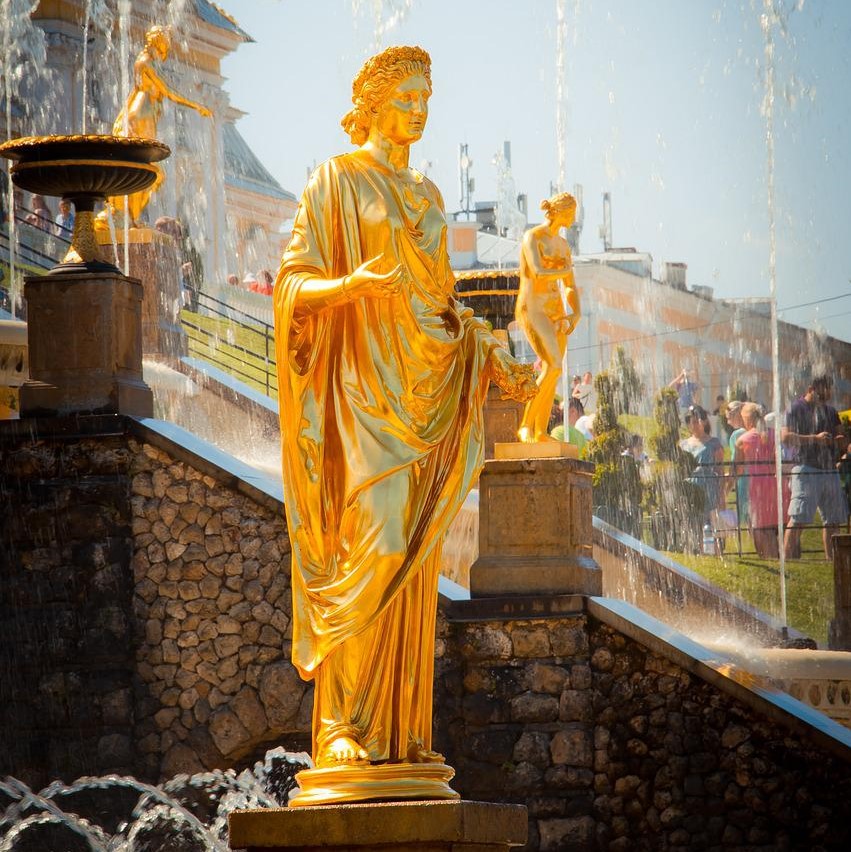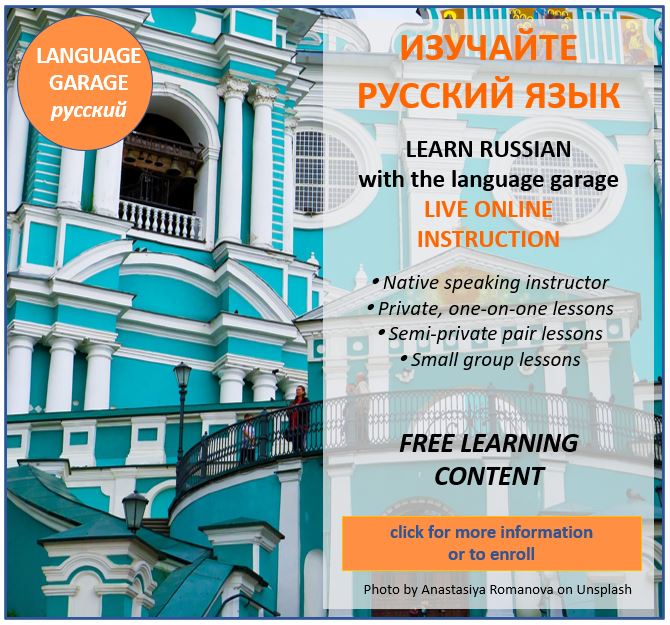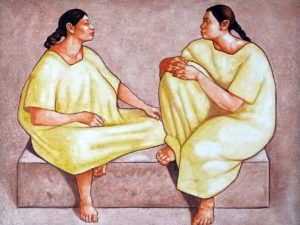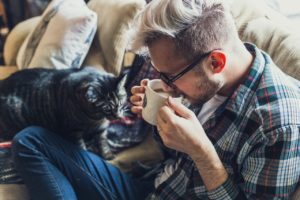Image by NikolayF.com from Pixabay
In this post we’ll learn basic Russian vocabulary related to the human body.
Моё лицо: My Face
Let’s start at the top, with words related to the head and face: голова (f) head, лицо (n) face, глаз (m)/ глаза eye/ eyes, бровь (f)/ брови eye brow/ eye brows, ресницы (pl) eye lashes, нос (m) nose, рот (m) mouth, зуб (m)/ зубы tooth/ teeth, губа (f)/ губы lip/ lips, ухо (n)/ уши ear/ ears, щека (f)/ щёки cheek/ cheeks, лоб (m) forehead, подбородок (m) chin, шея (f) neck, волосы (pl) hair, усы (pl) mustache, борода (f) beard.
- У меня карие/ голубые/ зелёные глаза.
I have brown/blue/green eyes. - Не ешь(те) с открытым ртом!
Don’t eat with your mouth open! - Я чищу зубы.
I’m brushing my teeth.
- У него большие уши.
He has big ears. - У неё маленький нос.
She has a small nose. - У меня нет бороды, но у меня есть усы.
I don’t have a beard, but I have a mustache. - У неё очень длинные волосы.
She has very long hair. - У меня болит шея.
My neck hurts.
Руки и ладони Arms and Hands
Now let’s look at vocabulary related to everything from your arms to your finger tips: рука (f)/ руки arm/ arms, рука (f)/ руки, ладонь (f)/ ладони hand/ hands, палец (m)/пальцы finger/ fingers, локоть (m) elbow, кисть (f) wrist, ногти (pl) finger nails, кожа (f) skin.
- У него большие руки.
He has big arms. - Вы пишите/ты пишешь левой рукой или правой (рукой)?
Do you write with your left hand or your right hand? - Дети всегда суют пальцы себе в рот.
Children always put their fingers in their mouths. - Он грызёт ногти.
He bites his finger nails. - У неё тёмная/светлая кожа.
She has dark/light skin. - Ой! Я ушиб/ ушибла локоть.
Ouch! I hurt my elbow.
Моя спина болит! My back hurts!
Now let’s look at: грудь (f) chest, грудь (f)/груди breast/ breasts, плечо (n)/плечи shoulder/ shoulders, талия (f) waist, спина (f) back, живот (m) belly, попа (f), задница (f), ягодицы (pl) butt.
- У него мускулистая грудь.
He has a muscular chest. - Завтра ей предстоит обследование груди.
She’s getting a breast examination tomorrow. - У неё болит спина.
She has a sore back. - Этот ремень слишком мал для моей талии.
That belt is too small for my waist. - Мне надо меньше есть. Мой живот растёт!
I need to eat less. My belly is getting big! - У него сильные плечи.
He has strong shoulders. - Ой! Я упал(а) на задницу!
Ouch! I fell on my butt!
Длинные ноги Long Legs
Now let’s look at vocabulary related to your legs and feet. нога (f)/ ноги leg/ legs, бедро (n)/ бёдра, ляжка (f)/ ляжки thigh/ thighs, бедро (n)/ бёдра hip/ hips, колено (n)/ колени knee/ knees, нога (f)/ ноги, стопа (f)/стопы foot/ feet, щиколотка (f)/ лодыжки, лодыжка (f)/ щиколотки ankle/ ankles, палец ноги/пальцы ног toe/ toes.
- У неё длинные ноги.
She has long legs. - Мои бёдра слишком большие для этих штанов.
My thighs are too big for these pants! - Травмы колена болезненны.
Knee injuries are painful. - Я подвернул(а)/вывихнул(а) лодыжку.
I twisted my ankle. - У неё очень маленькие ножки.
Her feet are very small. - Я ударил(а)/повредил(а) палец на ноге.
I hurt my toe.
Внутренние Органы: Internal Organs
Now let’s look at some basic vocabulary for internal organs: сердце (n) heart, лёгкое (n)/лёгкие lung/ lungs, мозг (m) brain, горло (n) throat, живот (m), желудок (m) stomach, кишечник (m), кишки (pl) intestines, печень (f) liver, почка (f) kidney, кровь (f) blood, вена (f) vein, артерия (f) artery, кость (f) bone, мышца (f) muscle, нервы (pl) nerves.
- Сердце перекачивает кровь по артериям и венам.
The heart pumps blood through arteries and veins. - Наши лёгкие наполняются воздухом при дыхании.
Our lungs fill with air when breathe. - Мозг и нервы являются частью нервной системы.
The brain and nerves are part of the nervous system. - У меня пустой/полный живот/желудок.
My stomach is empty/full. - Ей нужна пересадка почки.
She needs a kidney transplant. - Его печень нездорова, потому что он слишком много пьёт.
His liver is not healthy because he drinks too much. - Нам нужен кальций для наших костей.
We need calcium for our bones. - Кишечник является частью пищеварительной системы.
The intestines are part of the digestive system. - У меня болят мышцы ног после бега.
My leg muscles are sore after I run.
Do you want to learn Russian?
Check out our other posts on Russian language, culture, and more. And if you’re looking for convenient and affordable live Russian lessons with a real teacher, check out The Language Garage Russian. Our lessons are given online in a virtual classroom, so it doesn’t matter where you live or work. We can come to you. And we have flexible options, with a free trial so that you can decide if there’s a fit. Check us out!





